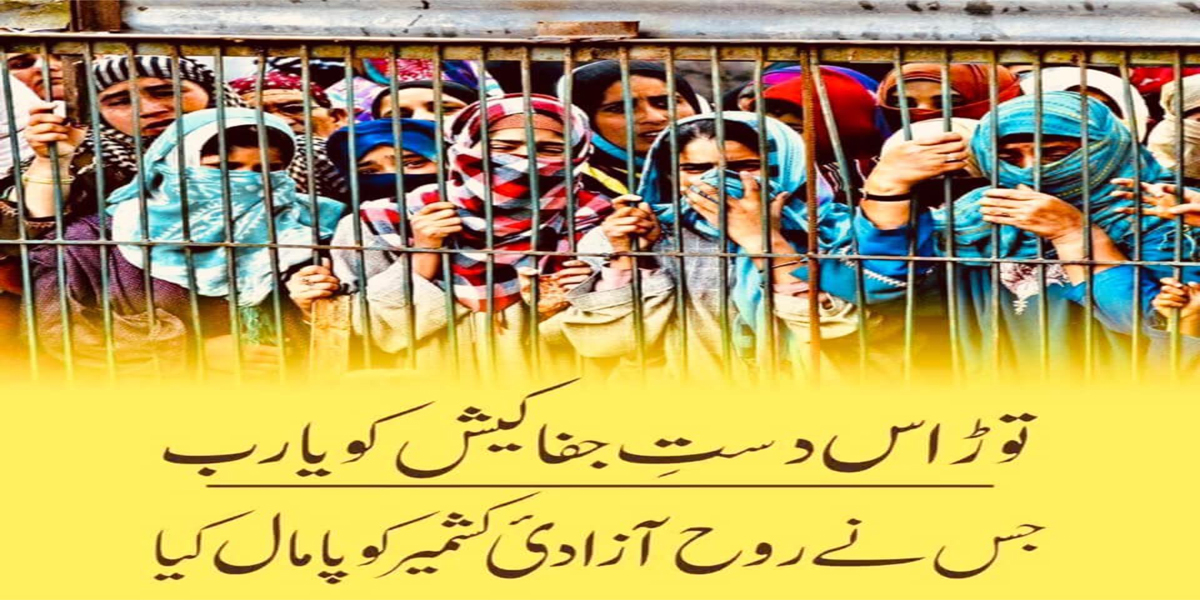Do they really want India and Pakistan to end the conflict for the sake of Kashmir? Or do they selfishly want to annex this vast territory, rich in water and natural resources? The demand goes beyond apparent boundaries and involves a multiplicity of factors rooted in time.
So what is the checkmate that Kashmir could give to the two contenders? And which,
speaking in a Solomonic way, would be the “super partes” partition that many Kashmiris would want?
As already highlighted in another article on Kashmir published on the website www.inspad.org, the issue of Kashmir is much more complex after the many UN resolutions that have alternated over time.
Since 1947, India and Pakistan have been the two contenders for Kashmir. India, perched on positions of secularism has tried, since the end of the English colonization, to demonstrate that Pakistan, steeped in jihadism and religious fundamentalism, was unable to guarantee the necessary tranquility to the non-Muslim component of the population of Kashmir and peaceful coexistence within an Islamized social structure.
The same applies to Pakistan which fears a Hindu invasion of Kashmir, with a transfer of Hindu population and possible diaspora by the Muslim majority.
Being considered the guiding state of all Muslim peoples in Asia, Pakistan has assumed the role of leader of the Muslim minority present in India.
India is proclaimed secular, Pakistan is Muslim; in the middle of this diatribe is Kashmir.
But it is an anachronism such a clear break as it can be seen after analyzing the cultural matrix of Kashmir and the ethnic-religious components that characterize it.

I immediately begin to dispel the myths consolidated in people’s minds. India is secular to a certain extent, just as Pakistan is not an Islamic state, that is, a state in which politics and religion come together in a unicum, as happens for example in Iran.
In truth, I do not believe that India is a completely secular state, as it tends to appear in the world, after having bitterly ascertained how Hinduism is about to carry out a sort of ethnic purge against the Islamic minority.
This rampant phenomenon, which had its climax in the episodes of violence unleashed by Hindu fanatics against unarmed Muslims during President Trump’s visit to India, leaves many doubts about Indian democracy.
Emerging nationalist Hinduism makes us imagine that parties like BJP and RSS, in particular of the majority that supports PM Modi, are advocates of adverse social unrest in particular to the Muslim minority.
Now if a nation proclaims itself secular it should not show idiosyncrasy against other religions, in particular the Islamic one. Then the proclaimed secularization is nothing but a mask worn to deceive the world.
I remember that Muhammad Ali Jinnah, the founder of Pakistan, was the first to advocate the theory of the two nations and led the Muslim League to adopt the so-called “Pakistan resolution” of 1940. Being Jinnah, deeply inspired by Atatürk and his secular Turkey, already in 1894, at the annual meeting of the League, he advocated the idea of an Indian Islamic nation, called Pakistan.
Idea that was not liked, however, by the Indian National Congress, in particular, by Mahatma Gandhi, who, to avoid separation in two States, at the time of independence proposed to Jinnah to become Prime Minister of united India. But as we know, history has gone differently, not doing such an operation to the nationalists.
Now since Muhammad Ali Jinnah was inclined towards a secular state, it is easy to understand how, despite the intricate events that it has gone through, Pakistan remains an atypical state compared to other Islamic countries, given the varied ethnic component that distinguishes it and the millenary history that elevates to “cradle of civilization”.
On the other hand, Pakistan, held up by India as the Muslim state par excellence in southern Asia that fosters jihadism, is actually more secular than it appears to be, given the initial historical premises.
It is therefore anachronistic for Pakistan that India appropriates Kashmir since the latter is predominantly Muslim; while India would like to remove the Islamic root by replacing it with a Hindu population, the one that practically, starting from the curfew of 5 August 2019, is trying to implement in the J&K region.
The gap between India and Pakistan is therefore not clearly defined, so neither can be uniquely labeled.
Kashmir, which appears to be made up of different souls, is characterized by values and traditions with considerable differences according to the territories.
The dilemma that led India to set foot even more in J&K – apart from the regalia made to it by the last Maharaja who, in 1947, brought Kashmir as a gift – was the discovery of a cave, which later became a place of worship and transformed into a sanctuary in Ladakh that has brought crowds of Hindus on pilgrimage and rooted in the mind of the Indians that Kashmir is their prerogative. Up to the late 1980s, the Amarnath yatra (pilgrimage) was mainly a Kashmiri affair with a few thousand yatris (pilgrims) every year.
But, following the 1989 uprising in the Kashmir Valley, many Hindu nationalists thought that, according to Hindutva’s vision, Kashmir was an inalienable part of India’s sacred geography (Chaturvedi 2005). Since then they have invented a pilgrimage (Ekta Yatra) with a criss cross from Kanyakumari in the south to Kashmir in the north in order to mark it as Hindu territory.
Kashmiri are different from both Pakistani and Indians. They are a proud people of ancient traditions that are lost in the mists of time. A people who often demand the right to self-determination, as clearly appears from somewhat combative thought groups that make their voices heard in England.
Therefore, not all Muslims are in favor of a Kashmir under the aegis of Pakistan. This means that, although orbiting the epicenter of Islamism, which still radiates from Pakistan to remote areas of Asia, the fact remains that the right to independence is very much felt by large sections of the population in Kashmir.
One of the cornerstones around which the interest of the Kashmiris always revolves is the land: Land is a very sensitive issue in Jammu and Kashmir since the times when, for fear of a growing influx of outsiders into Jammu and Kashmir State, Maharaja Hari Singh introduced in 1927 a law relating to the use of land ownership in the hands of the premises.
The concern that the current Indian government of Narendra Modi wants to allow Indian settlers to settle in Kashmir in order to “change the demography of the state”, brings to mind Palestine’s occupation by Israel, This warning example and the protest in Kashmir was termed as “intifada” by the local press.
Will Kashmir be able to checkmate India and Pakistan?
The various souls of Kashmir make it a composite state: Azad Kashmir, that was part of Jammu province before 1947, is a vast territory that falls under the influence of Pakistan. But this does not mean that it wants to orbit, according to many local groups, around it asking for a form of independence. Thus the Buddhist Ladakhis who struggle for the separation of Ladakh from Jammu and Kashmir state; Kashmiri Pandits in the valley who envisage their own territory called Panun Kashmir and yet also groups in Gilgit-Baltistan.
Most sections of the JKLF are critical and pursue nationalistic political projects, completely detaching themselves from India and Pakistan. .
Only one faction, the one which is still headed by Amanullah Khan, maintains closer ties with Pakistan and propagates in Britain the accession of Kashmir with Pakistan
Photographing the current situation, without entering into the India-Pakistan dispute that for an original sin committed at the end of English colonialism by mistake of the governor of J&K, the largest state in British India at the time, means asking serious questions.
Will the people of Kashmir manage to regain the necessary cohesion and sufficient grit to regain their destiny?
Here is the real checkmate to the two contenders of the infinite dispute, but strong determination on the part of the entire population of Kashmir and the ability to get rid of the skeletons of the past are required.

